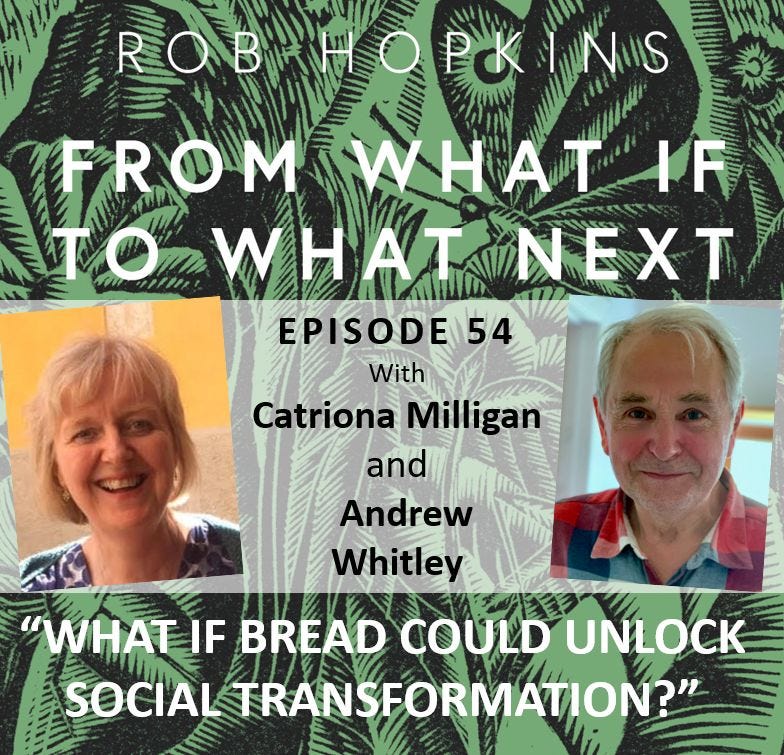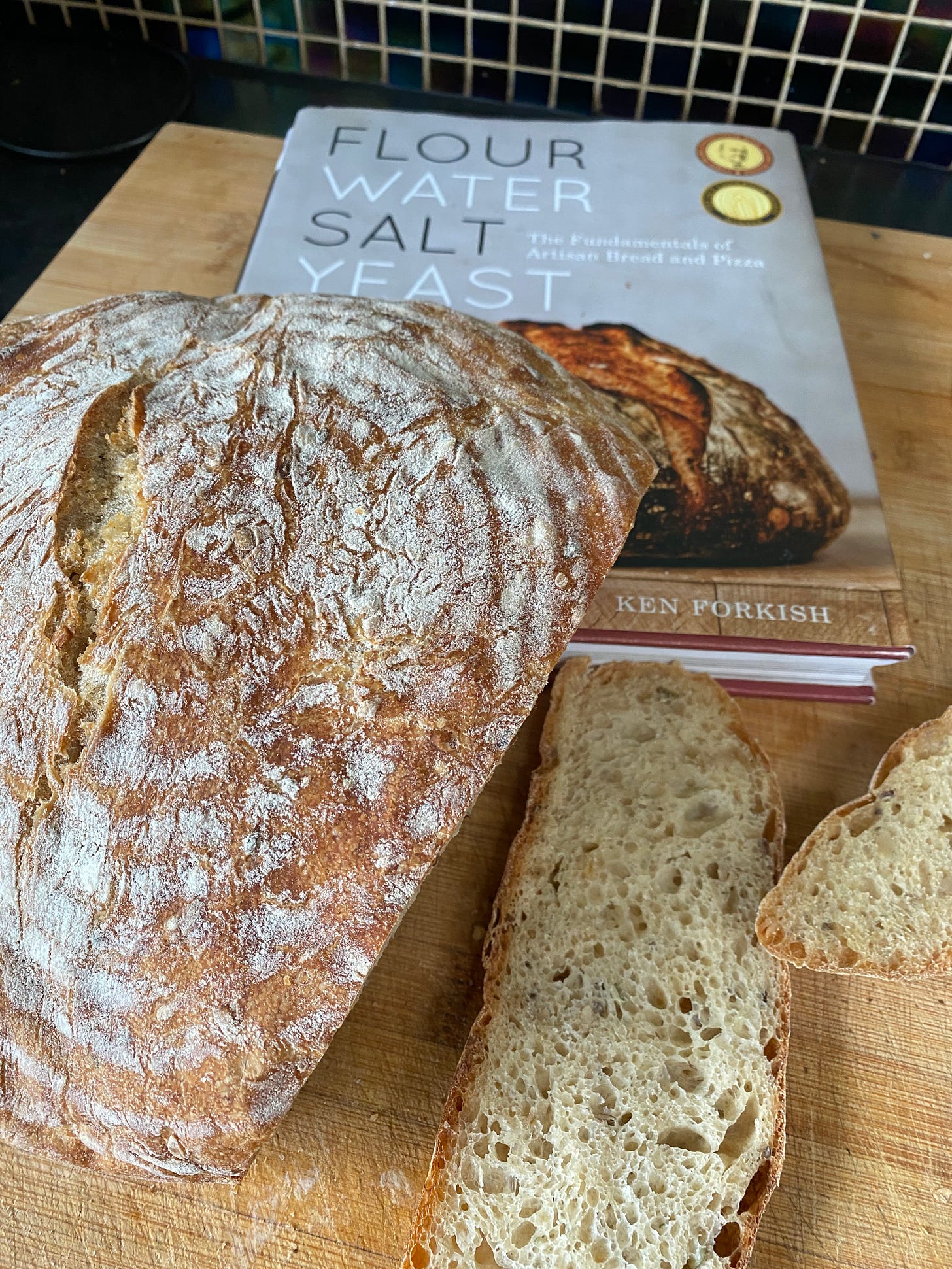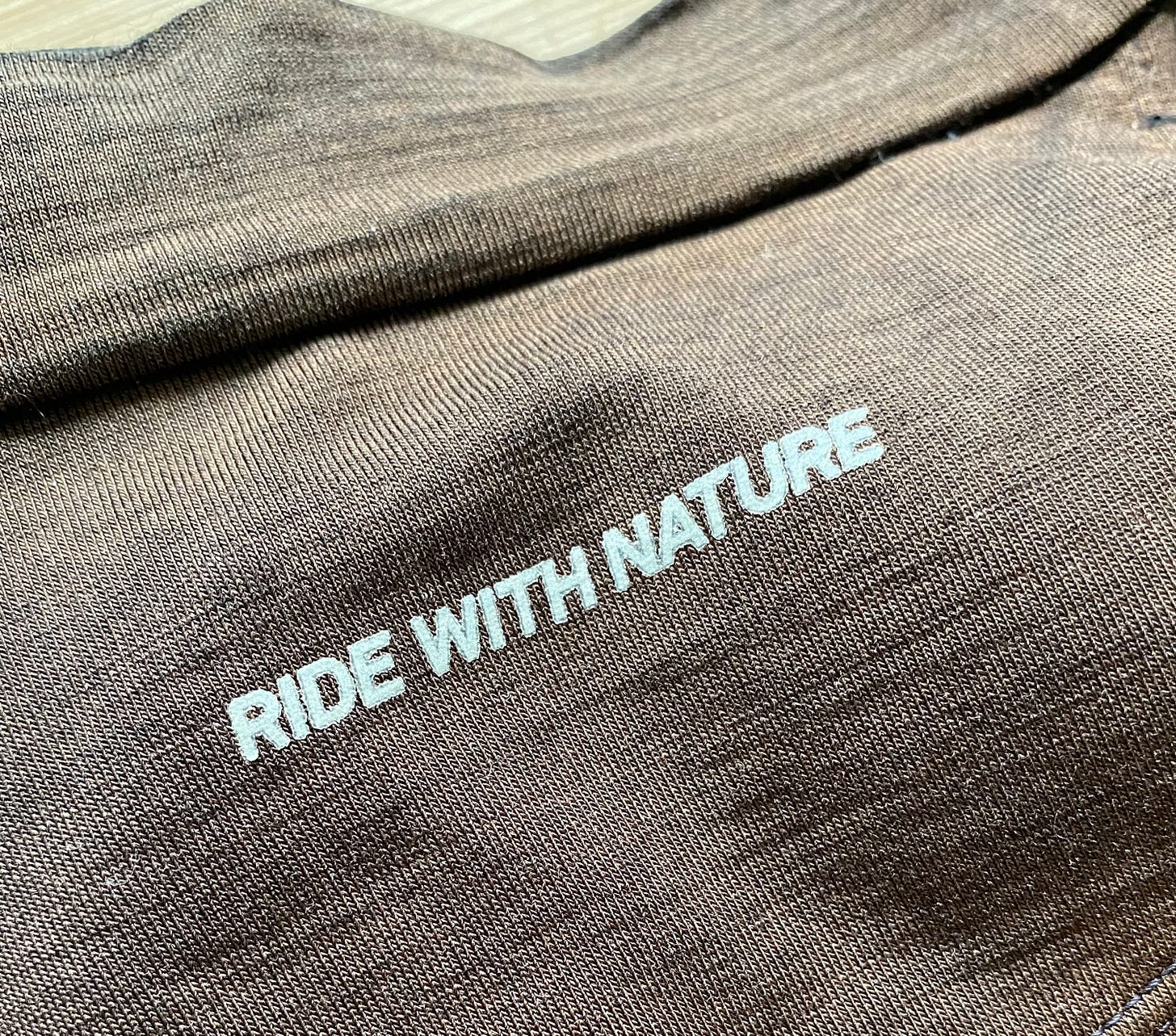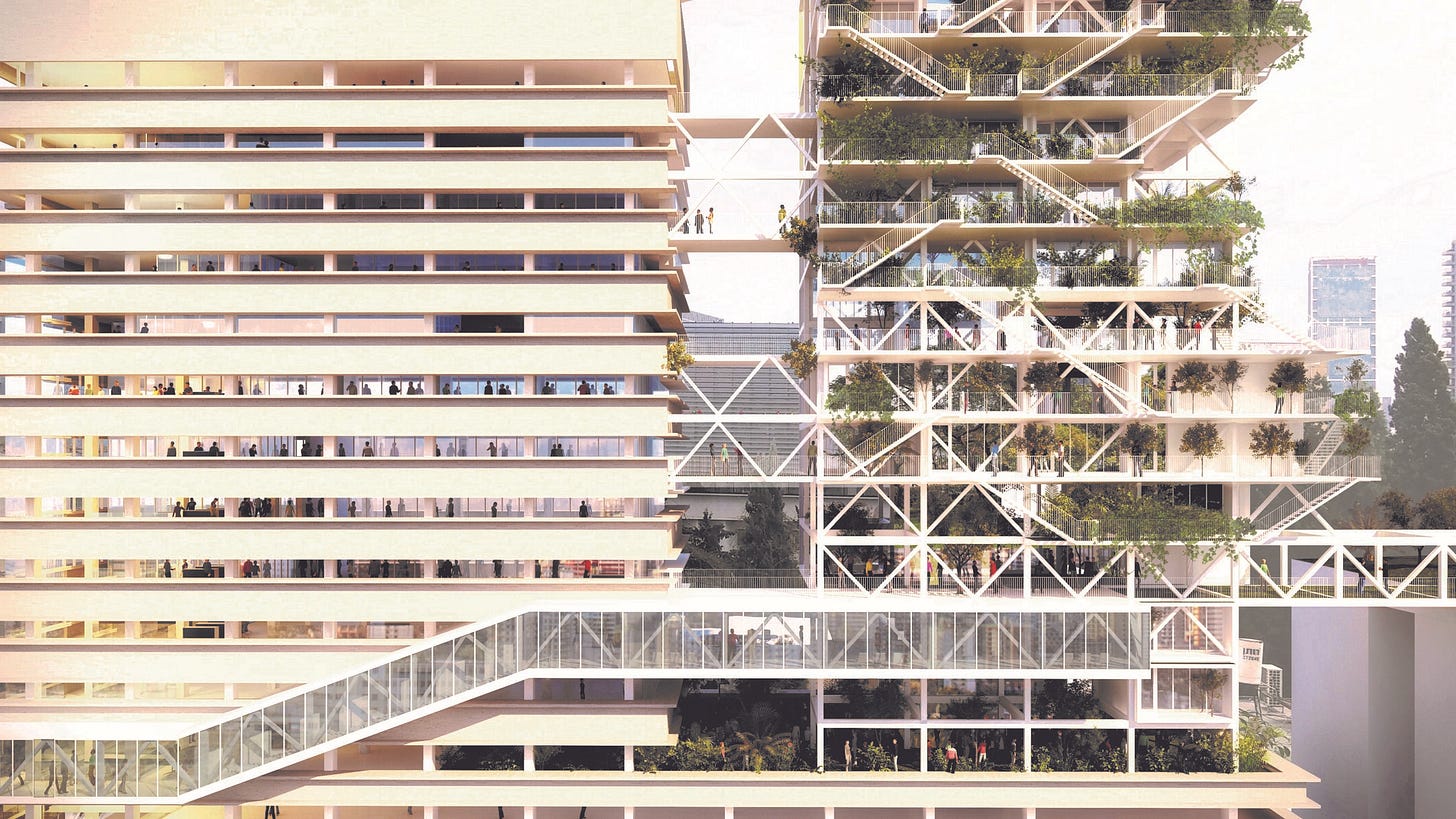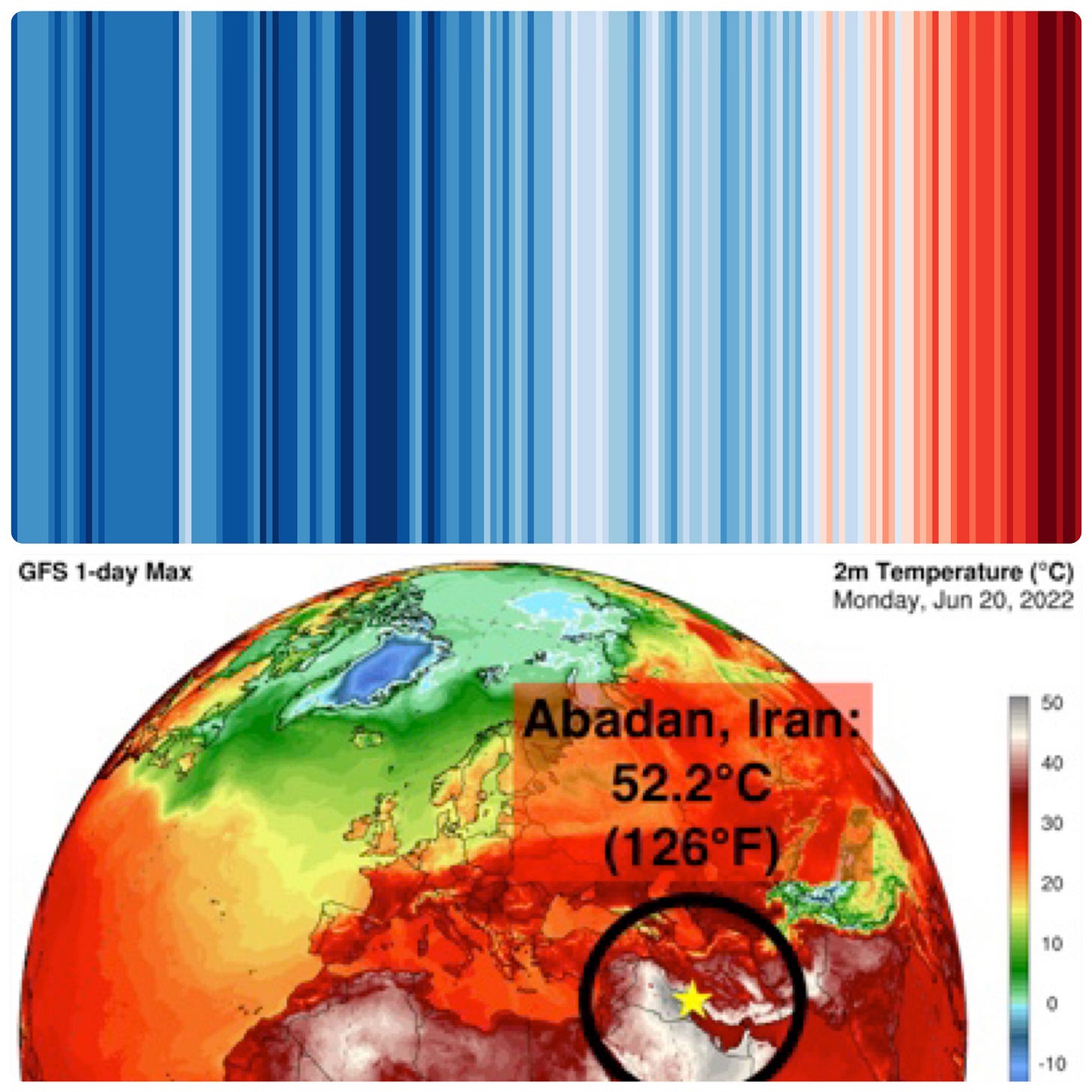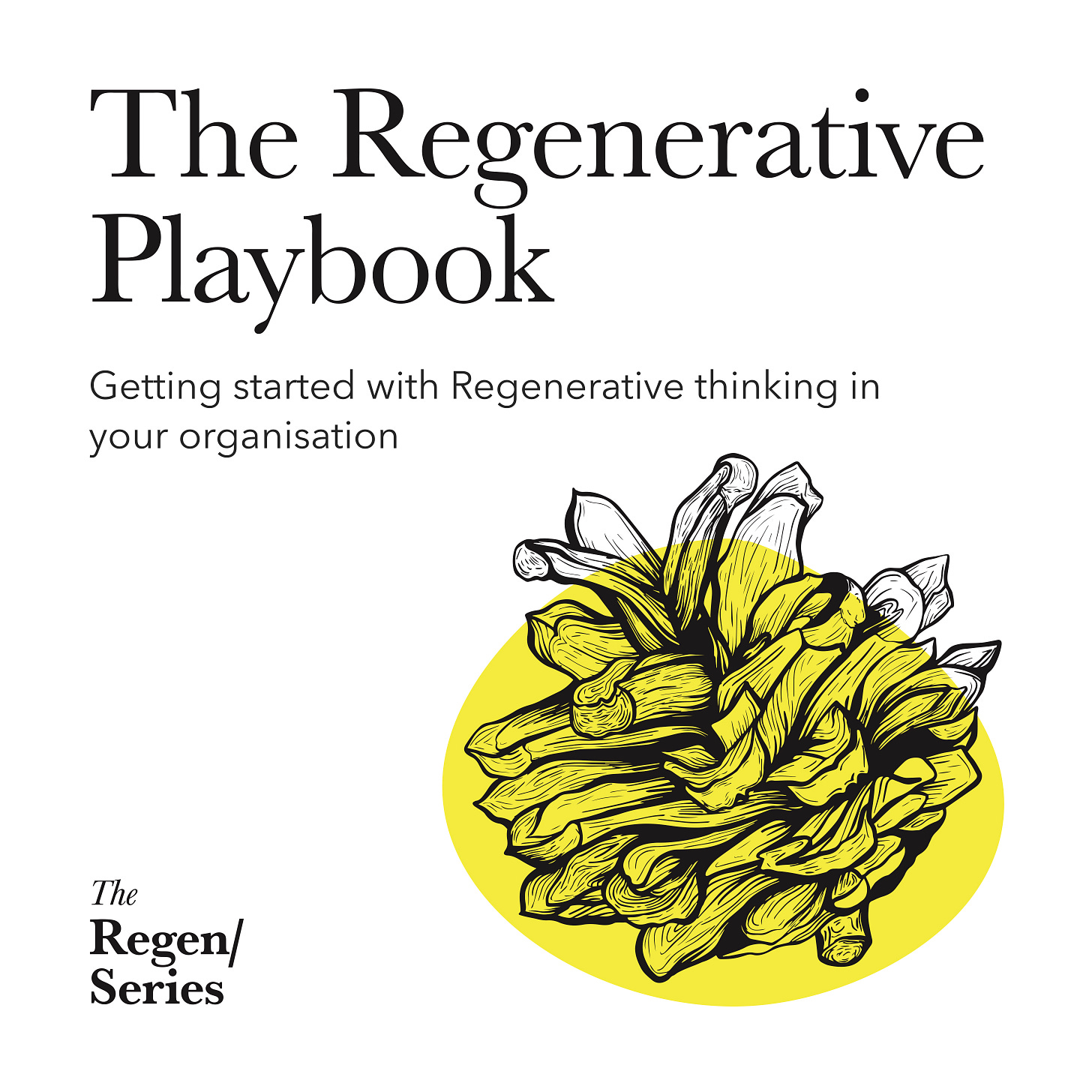What's Your Regen Conversation?
Potentialism, Eco Reads, Bread, Ride with Nature, Place, Home Health, Living Product Challenge, Digital Design, Warming Stripes + Zoom Regenerative
Welcome to Regen/ Notes
Regen Notes is the newsletter of regenerative news, stories and more, with a sideways focus on the built environment. It is a companion to our Regen/ Zoom activities where we connect the spaces between regenerative dots, share ideas, themes and individuals that invigorate and inspire.
Potentialism.
Last Sunday marked World Environment Day - and as often with such ‘days’ the tagged news and feeds were full of doom and gloom, and rightly so given the climate and geopolitical issues we see in the world. But we should also focus on the potential of what we can achieve. The world of environmentalism, sustainability and regenerative is waking up to the tasks ahead and asking far far better and searching questions that will lead to climate solutions. Sunshine on a cloudy day. As Rob Hopkins comments (see below) on his What If / What Next podcasts it is “the future that is still possible”
Eco Reads
The Local Longridge Library looking to create a display of books to mark environment week asked for a short series of books to show case. Here are my eight, now available through the local Library service.
Tarka - Henry Williamson Written in 1927 by one of our finest nature writers. Written for adults and loved by children, Tarka was based on thousands of hours of observing otters.
Sand County Almanac. - Aldo Leopold An ecology classic. This is available now in the Penguin Green Theme series as "Think Like a Mountain", and it is from SCA where this phrase was first used.
The Living Mountain - Nan Shepherd This is one of our best outdoor mountain books with a focus on the Cairngorms. Nan Shepherd’s love of rambling and connectivity with nature fused with a passion for poetry, Zen, Taoism and mindfulness shine through the Living Mountain. “Of going into the mountain, not conquering, of visiting the mountains not to climb them but to visit as you would an old friend”
Silent Spring - Rachel Carson - the book that triggered the environmental movement in the 1970s and is still as relevant today as it was then.
Braiding Sweetgrass - Robin Wall Kimmerer - This has become an ecology classic - Robin’s beautiful writing illustrates how we can and should both be inspired and learn from plants and indigenous wisdom (another in the Penguin Green Theme Classics collection)
Underland - Robert MacFarlane. from one of our best outdoor writers, Underland explores what is happening below our feet.
Wilding - Isabella Tree. Now a classic on Rewilding - Isabella Tree recounts the story of rewilding an estate in the south of England.
The Ministry for the Future - Kim Stanley Robinson - a non-fiction (from which everyone should at least read the first chapter, especially now as we witness the extreme temperatures caused by climate change) and how climate organisations are seeking to reorganise and reinvent themselves in the light of Climate Change and COP’s.
These books will be rotated through the summer with the next set to be young adult climate literature. What would you recommend?
Together We Rise
Rob Hopkins’ series of What If podcasts via Patreon is always a brilliantly inspiring listen as “a journey into the future that is still possible” I finally caught up with the recent ‘bread’ issue - Episode Fifty-Four: What if bread could unlock social transformation? And what a fascinating insight into the social and community power of bread with Andrew Whitley and Catriona Milligan.
It's all about bread, and the role that good, nutritious bread, made from wheat grown well, could play in transforming the world around us.
This episode took me back 20 years or so, where at Andrew‘s bakery in Cumbria I brought together a group of disparate group construction directors and managers on a collaborative team building exercise through bread making “Together We Rise”.
One thing I took away from that time, and whilst obvious, has served me well, in that bread is a living organism and should be treated as such. A little connectivity with living systems with each batch of bread I make. (Currently at 4 loafs a week exploring recipes from Ken Forkish’s brilliant Flour, Water, Salt, Yeast book).
Riding With Nature
A recent wonderful cycle mini adventure in NW England took me and partner Soo from our front door, through the Bowland Fells, edging on the Yorkshire Dales, through the Lake District (with lunch break on the banks of Haweswater - topical as currently reading Wild Fell by Lee Scholfield ) and on into the borders and home via train. Cycling through a nesting area of lapwings on a stretch of road bizarrely sandwiched between north and south M6 carriageways, land the birds had (re) claimed as theirs, had them flying close alongside, telling us loudly to ‘pass on through’. Magic.
On our Radar: Regenerative Events Online and in Person
The interconnection between human health and planetary health should be the driving incentive of regenerative design. Martin Brown, Regenerative Design, RESTORE
9th June: Is your home trying to kill you?
Ann Vanner, Regenerative Practitioner, Senior Lecturer in Architecture and Architectural Technology, will talk about how profoundly our lives are shaped and impacted by the places we call home at an event in Preston on the 9th of June at 18:00 Registration and details here
10th June: Introduction Regenerative Social Housing
We all have a role to play and as a housing sector we need to start changing the way that we think about sustainability.
Echelon has teamed up with regenerative sustainability provocateurs and consultants Martin Brown and Anna Williamson to deliver a programme exploring regenerative principles within the social housing sector. The regenerative sustainability subgroup, delivered through our best practice club AMIP, will bring together organisations to move their environmental, social and sustainability approaches beyond business as usual to a regenerative approach that delivers real value and benefit.
Email regenerativesustainability@echelonconsultancy.co.uk for more information.
14th June: A Journey in Regenerative Materials
Zoom Regenerative continues its journey of raising awareness, joining the dots and celebrating regenerative journeys on 14th June. Walter Lourie and Georg Klampfer at MAFI-Walk On Art share a made for zR factory video premier, featuring Living Product Challenge, Declare and regenerative forestry insights.
Join our community of regenerative future seekers on the 17th, hear the MAFI story, along with our gathering space, one-to-one chats and inspiring Regen/ conversations.
16th June: Regenerative Design in Digital Practice
Living Future Europe’s show case of digital tools for a regenerative design. Registration and details here
21 June: Climate Conversations
June 21st is #ShowYourStripes day. How will you use and display the warming Stripes to start conversations on climate change?


(updated 21 June)
On 20th June a record temperature of 52.2 (126F) was recorded in Iran
On Place
Anna Williamson FRSA, (Regenerative Sustainability Consultant at Limewood Group) shares thoughts around ‘place’
A couple of weeks ago when Martin tagged me in a LinkedIn post about Prince Charles state visit to Canada reiterating ‘We must learn from indigenous people on climate change’, I felt compelled to respond with how it made me feel:
Since then I have reflected on my comment, in a search for solutions. I know fundamentally that we can change and re-frame through new and radical ways of engaging with communities and ensuring all stakeholders, including non-human, are part of that process and have a seat at the table.
Regenerative practice is to work on ourselves, supporting the development of the people and the teams around us and in the world of business we work on projects or developmental opportunities for our communities that have a sense and an understanding of ‘place’ and together, Martin and I work to support those projects that organisations bring - they offer a developmental opportunity.
Speaking of the regenerative self, then the organisation, then the sector enables next level development to emerge. Ecological aesthetics and design by way of biomimicry is key to those. As is a keen sense of Place.
Part of regenerative placemaking interventions, which is designing a way that we can step into the future intervention bit by bit, is to create an iterative and experimental culture, so that we can learn by doing, rather than create five year plans in business so that we can understand the destination that we want to create. But the way in which we're going to get there is going to require significantly more agility than it has done in the past.
While working through these feelings Prince Charle’s comment brought up in me, I was offered a gift of help. The national beacon network (once used to inform the land of the invading Spanish Armada) was lit to commemorate the Queen’s Jubilee and one of those beacons is Rivington Pike.
Rivington is important to me - I was raised there and have based my business there, to be in nature and support nature with my work. I enjoyed a nature-centric childhood but as I’ve deepened my practice I am forced to acknowledge the legacy of Lord Leverhulme and his business and operations that grew to become Unilever. Although blessed with what some would call a gold-standard ESG (and great regenerative practitioners have worked with them over their tenure) it has to be acknowledged that over the epoch of the business it has been responsible for horrific human rights violations (though the term was not used in the 1800’s) and the development of the monoculture in a quest for palm oil for soap. Soap - the product everyone needs again and again - supply chain need is guaranteed so does this mean violations and exploitation ‘at any cost’?
Prince Charles is correct in his intent of course, but I stand by my initial feelings - it’s a destabilising comment when delivered by a man who has benefited from the exploitation of people and land.
But am I any better? Being raised in a beautiful and protected location that was left to the people of Bolton and Chorley in perpetuity due to Leverhulme’s Bezos-like wealth, I didn’t see (or question) what built it and whether it was right.
Sitting in the ruins of Liverpool Castle at sunset - a folly he built - watching the beacon commemorating the Jubilee I have new feelings. Respect for pageantry is one, as it this is a vessel no different from those that indigenous peoples use to explain and manage culture, and a renewed understanding that We (humans and non-humans) are inextricably connected and I cannot hurt an Other without hurting myself - or more hopefully - I cannot support an Other without supporting myself.
The Small Book with the Big Conversation Potential
Our Regenerative Playbook is available to read online at https://bit.ly/regenplaybook. But do leave a comment if you would like to purchase a hard copy to kick start regenerative conversations in your organisation.
You can also gift a subscription if you think your colleagues or others in your team or organisation would find what we cover of interest.





